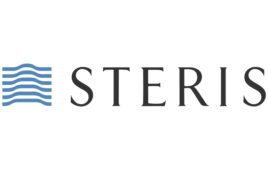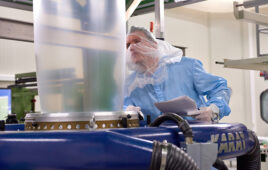
(Image courtesy of Pelican BioThermal)
Temperature-controlled packaging company Pelican BioThermal announced that it has adapted some of its shipping packages to accommodate vaccines at temperatures as low as -80°C.
The Plymouth, Minn.-based company has switched the materials it uses to keep the packages deep-frozen from saltwater or paraffin to dry ice, according to Adam Tetz, director of worldwide marketing for Pelican BioThermal. The dry ice systems can provide frozen payload protection for up to 7 days, Tetz noted. Payload capacities range from 1 to 96 liters for parcel shippers and 371 to 1,686 liters for pallet shippers.
Shipments of the Pfizer-BioNTech vaccine for SARS-Cov2, the virus that causes the novel coronavirus, began over the weekend, following Friday’s FDA emergency use authorization. Pfizer has said the vaccine must be stored at temperatures of at least -70°C to maintain its potency. The pharmaceutical giant has also designed temperature-controlled thermal shippers that use dry ice to maintain recommended storage temperature conditions of -70°C±10°C for up to 10 days unopened, according to its website.
Moderna, whose coronavirus vaccine could receive FDA emergency authorization this week, has said the vaccine can be shipped and stored long-term at standard freezer temperatures of -20°C for 6 months.
Pelican BioThermal has long offered its reusable Crēdo Cube deep-freeze packaging for transporting products in -20°C and -50°C temperatures, according to a news release. Many of its product lines now include a variety of frozen options that cover temperatures of -20°C, -35°C, -50°C and -80°C. The new deep-frozen packaging may be used for short-term vaccine storage, redirect courier transport of vaccines from freezer-farm hubs to immunization locations and daily vaccine replenishment to remote and rural areas, according to the company.
“We know that pharmaceutical companies are in all phases of the development process for vaccines and therapeutics and working tirelessly to bring safe and effective drug products to market quickly,” said Greg Wheatley, VP of worldwide new product development and engineering at Pelican BioThermal, in the release. “Our engineering team matched this urgency to ensure they have the correct temperature-controlled packaging to meet them where they’re at in drug development for the pandemic recovery, from discovery to distribution.”




